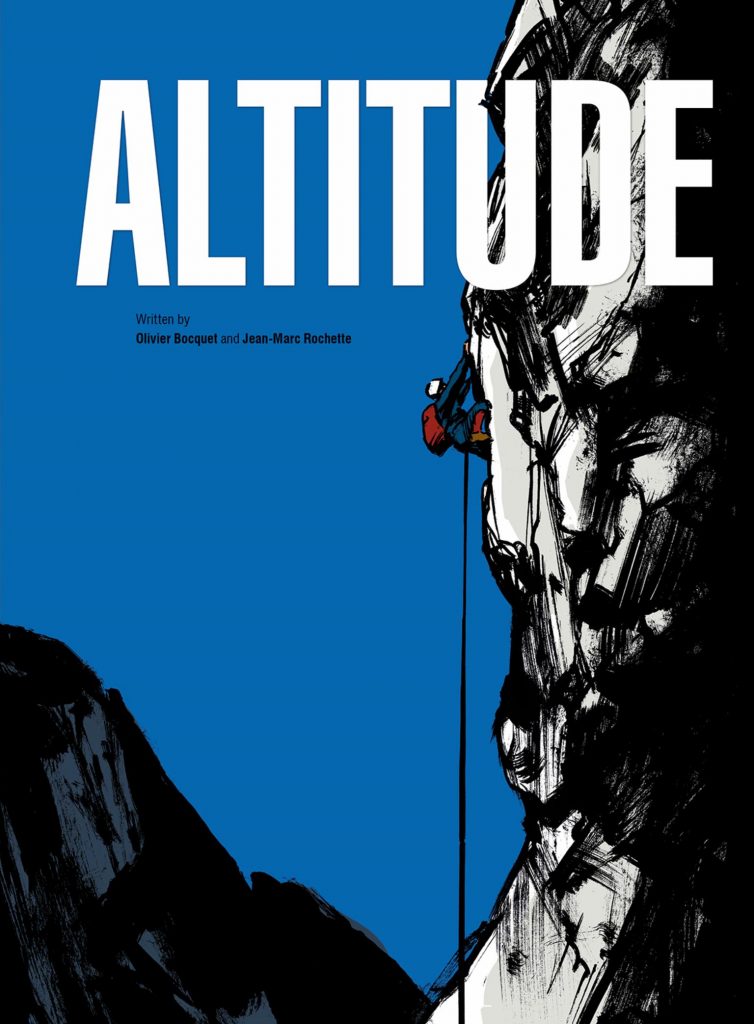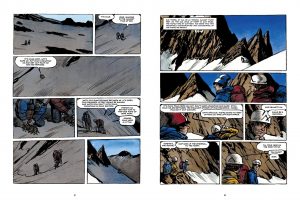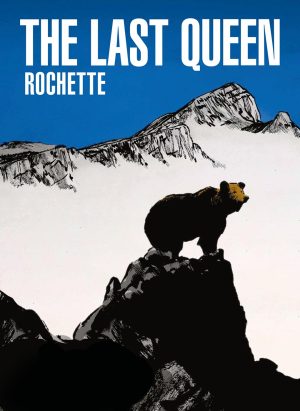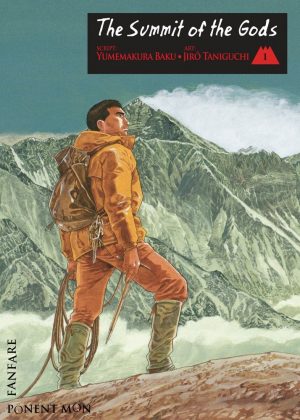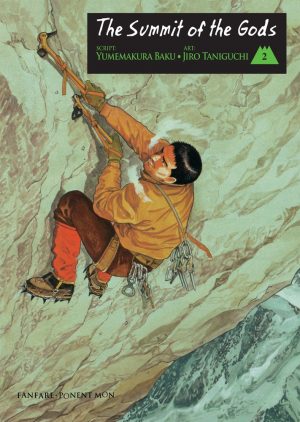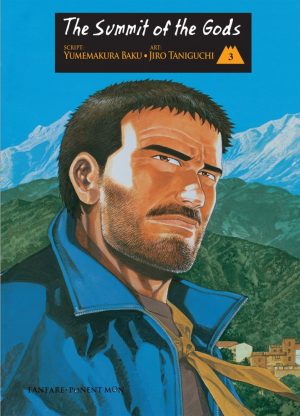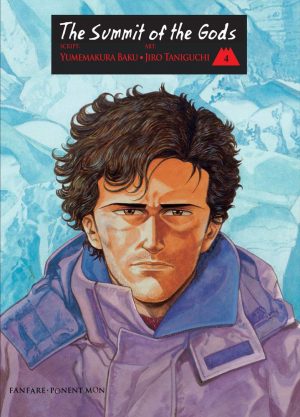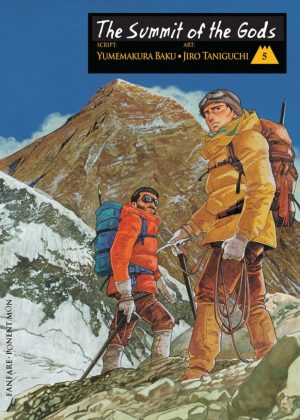Review by Frank Plowright
It’s a strange idea for an artist to produce an autobiographical story, yet have someone else script it, but that’s what Jean-Marc Rochette has done with Altitude, the story of his climbing experiences during younger days. Rochette collaborates with one of his writing partners on the Snowpiercer series, Olivier Bocquet, picking up from the first time he experienced a true appreciation of a view from on high during his early teens. This was in the 1970s, when the young Rochette lives within easy distance of the Swiss Alps, has a friend with some climbing experience, and catches the bug himself very quickly.
A primary attraction of climbing is the challenge, which is supremely well conveyed, with Rochette pushing himself to attempt climbs of ever greater difficulty, while the sheer size of mountains and icy passes dwarfing him and his companions is emphasised. Rochette’s obviously illustrating fond reminiscences, but while the respect for nature is ever-present, what’s so rarely apparent, is any sense of nature’s beauty in the scratchy art, which is all function and no frills. It’s puzzling as Rochette takes care with the light, colour and shading, and his sketchy depiction of rocks is fine. Perhaps it’s a matter of scale, as the few exceptions are when he’s not squashing mountains into small panels. Later on he includes some fascinating impressionistic pages, a love of art, and particularly a Souvine painting, given importance by being embedded in the opening scene.
Rochette shows the joy of climbing, supplying history, technique, nuances and matters ordinary people wouldn’t even consider, such as how a crate of melons gets to an Alpine lodge. Dangers and tragedy also feature, arriving as suddenly as an avalanche, the sheer terror of which is also encountered. The longer Altitude continues, the more memorials feature, and they mean something to us as well, because the time has been taken to establish people Rochette climbs with.
Climbing is the central theme, but Rochette sifts in other moments from his teenage years, a difficult relationship with his mother, and how he was stifled at school by a particularly small-minded set of teachers. The art teacher is presented as a special form of wanker, making Rochette’s later career ironic. We see the beginnings of that, and the darkness of his first published strip, reprinted in context, hints at turmoil within.
Given this is Rochette’s younger days, Bocquet’s contribution is uncertain. Does it extend to structure or is it merely supplying dialogue? If just the latter, it’s admirably subtle, never drawing attention away from the focus, and ensuring Rochette’s voice is clearly heard. It needs to be through the succession of dark events toward Altitude’s final section, the consequences determining how Rochette’s life would play out.
A text appreciation from mountaineer Bernard Amy closes the book, and isn’t to be skipped. It contextualises much of what’s preceded it, and provides a connected epilogue.
Sensitivity and respect are present all the way through what’s an engaging autobiography whether or not you have an interest in climbing. It’s stretching to claim Rochette uses it as a metaphor for life, but as Amy notes, it’s something universal within us to strive and achieve in some form. There’s no point where Altitude doesn’t have something of interest to say, which makes it a rare, as not every producer of an autobiography can see past themselves.
